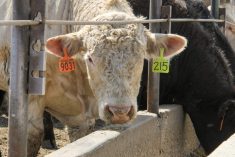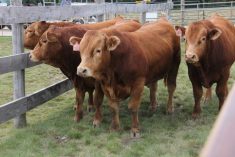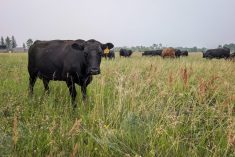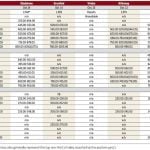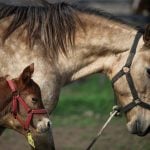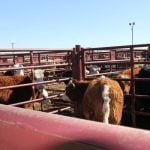Saskatchewan’s program to forgive provincial student loans for veterinarians and vet techs serving livestock producers at rural clinics will now also cover those doing the same work out of bigger communities.
The province’s Loan Forgiveness for Veterinarians and Veterinary Technologists program was first announced in April last year, offering forgiveness of 20 per cent of an eligible provincial student loan debt, for up to $4,000 per year, for up to five years, or $20,000 maximum.
To be eligible, a program participant licensed to work as a veterinarian or veterinary technologist in Saskatchewan had to have started working in a designated “rural or remote” community — or with livestock services in designated communities — on or after Jan. 1, 2021. The loan forgiveness program started taking applications Jan. 1 this year.
Read Also

U.S. livestock: Cattle fall sharply as Trump says he’s working to lower beef costs
Chicago cattle futures fell sharply on Friday after U.S. President Donald Trump said his administration was working to lower the…
The eligible vet or vet tech has had to be either “new to the profession or new to the community” and had to have been employed in that community for a minimum 12 months and provided at least 400 hours’ service in that community.
The change announced Tuesday extends the same level of loan forgiveness to those working at any Saskatchewan practice that “offers veterinary services to livestock stakeholders from rural or remote communities.”
That expanded criteria would also cover mobile veterinary services, among others, the province said.
“This expansion will ensure that veterinary professionals providing services to smaller communities are eligible for the program,” provincial Advanced Education Minister Gord Wyant said in a provincial release Tuesday.
Wyant described the move as “a positive step forward in addressing the need for veterinarians and veterinary technologists in rural and under-serviced communities in Saskatchewan.”
The Saskatchewan Cattlemen’s Association “had raised concerns with the government previously around the qualifying parameters for this program,” SCA chair Arnold Balicki said Tuesday in the same release.
“We truly appreciate that (provincial officials) took our concerns to heart and made the necessary changes to allow clinics in larger centres such as Prince Albert, who also serve rural clients, to now qualify.”
Balicki, for example, ranches at Shellbrook — about 45 km west of P.A., the province’s third-biggest city.
The beef cattle industry, among others, “is facing a shortage of vets which can negatively impact our industry, our ability to expand, our need for an established vet/client relationship for access to drugs and even animal welfare,” he said. — Glacier FarmMedia Network




